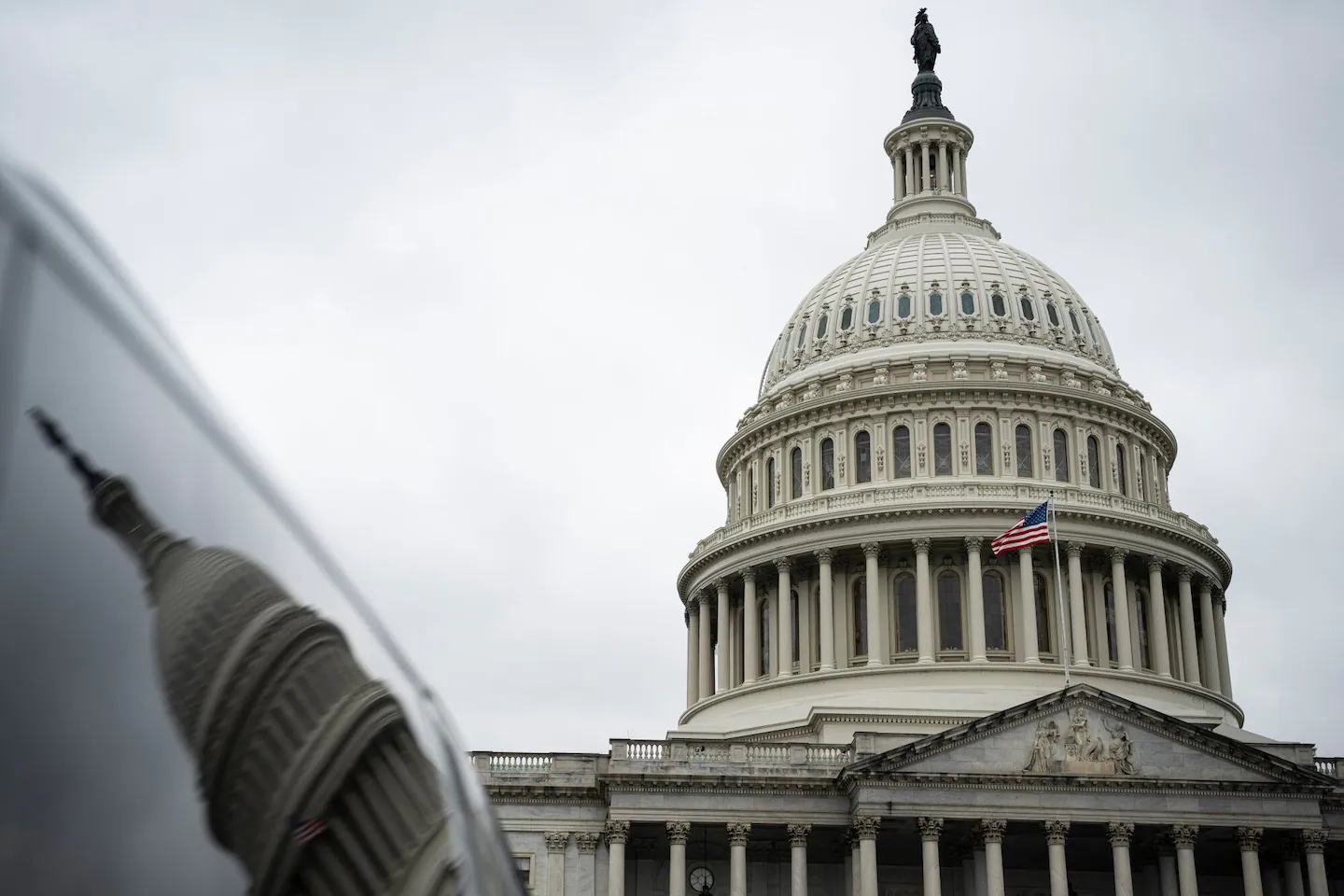
President Donald Trump thanked the House for passing its version of the legislation, but warned that a shutdown could be coming.
“We’ll continue to talk to the Democrats, but I think you could very well end up with a closed country for a period of time,” he told reporters in the Oval Office.
Republicans have said their proposal – a “clean” continuing resolution that doesn’t include additional GOP policy changes – buys time to continue bipartisan negotiations in the House and Senate Appropriations Committees over full-year funding bills. The measure would add $30 million to reimburse local law enforcement for lawmaker security and an additional $28 million for Supreme Court security and $30 million for executive branch protection, after Charlie Kirk’s fatal shooting.
Democrats argue they cannot support the Republican funding bill because they have been left out of the process of shaping it even though their votes would be needed to approve any funding bill in the Senate. They also argue that voters want them to fight for lower health care costs and to force the Trump administration to follow congressional spending directives even if the president opposes them.
The Democratic plan that the Senate rejected Friday would make Affordable Care Act subsidies put in place under the covid-19 pandemic permanent, restore funding that has been frozen by the Trump administration, reverse cuts to Medicaid enacted under the GOP’s tax and spending bill, and put $186.5 million toward security for lawmakers in Washington and in their home states or districts.
Making the ACA subsidies permanent would increase deficits by almost $350 billion over the next 10 years and would increase the number of insured people by 3.8 million, according to a Congressional Budget Office analysis released Thursday.
Democrats said Friday that they would continue to demand that Republicans meet with them to negotiate.
“A negotiation is the only way to avoid a shutdown,” Senate Minority Leader Charles E. Schumer (D-New York) told reporters.
He argued ahead of the vote that Americans want policy changes that will bring down health care costs and said that Republicans will take the blame for a potential shutdown because they have not negotiated.
“Republicans are voting with the status quo. They’re wrong. Americans are tired of the status quo,” he said. “By not even negotiating, by trying to make this harder, Donald Trump and Republicans are shutting the government down.”
Senate Majority Leader John Thune (R-South Dakota) said he hasn’t ruled out talks but added that Democrats did not seem serious about negotiating.
“In the past, we’ve always had these short-term CRs and they’re pretty noncontroversial,” Thune told reporters after the failed votes Friday, adding that his party is willing to negotiate on the ACA subsidies in separate legislation. If Congress doesn’t act, the subsidies will expire at the end of the year. “Those are issues that are open to discussion. But eventually it’s going to be an up-or-down vote on whether we want to keep the government open.”
Sen. John Fetterman (Pennsylvania) was the only Democrat to vote for the Republican funding extension, while Sens. Lisa Murkowski (Alaska) and Rand Paul (Kentucky) were the only Republicans to vote against it. Both the Republican and Democratic bills needed 60 votes to pass, and neither came close: The Democratic version failed on a 47-45 vote, and the GOP version failed by 44-48.
“I wanted to project my clear message, and that does not include just a short-term CR,” Murkowski said, adding that she wants to incorporate the traditional appropriations bills that have already passed the Senate; extend the ACA subsidies; and restore some funding for public broadcasting that Republicans eliminated in July.
“I am going to make clear what my message is for a path out of here,” she said.
Earlier Friday, the GOP funding extension passed in the House 217-212, despite objections from Democrats that it does not address health care or other liberal priorities.
Speaking to reporters after the vote, House Speaker Mike Johnson (R-Louisiana) said that his party could have packed the funding extension with Republican priorities, “and we chose not to do that.” Democrats, Johnson said, filled their counterproposal with “partisan demands that will break the system down,” and he said it would cost an additional $1.4 trillion by one estimate, a figure Democrats dispute.
“If they choose to vote against this clean, completely nonpartisan [continuing resolution], then they will be choosing to shut the government down, and they will own the consequences of what happens,” Johnson said.
Two House Republicans – Reps. Thomas Massie (Kentucky) and Victoria Spartz (Indiana) – voted against the funding extension, arguing the new deadline is designed to pressure lawmakers to accept a massive omnibus spending bill ahead of the Thanksgiving holiday. Rep. Jared Golden (D-Maine), who represents a Republican-leaning district, was the sole Democrat to vote for the funding measure, though Rep. Marie Gluesenkamp Perez (D-Washington) said she also intended to support it but was unable to register her vote.
On the House floor before the vote Friday, House Minority Leader Hakeem Jeffries (D-New York) said that Democrats don’t want a shutdown, but they do want Republicans to take their demands over health care coverage seriously.
“We have a choice to make here in the House of Representatives. It appears the Republicans believe that health care should simply be a privilege available only to the wealthy, the well-off and the well connected,” he said. “We strongly disagree.”
House Appropriations Committee Chairman Tom Cole (R-Oklahoma) replied that Democrats got what they wanted – a continuing resolution without additional Republican policy provisions, which would buy more time for bipartisan negotiations.
“This is what my friends on the other side asked for, a clean bill,” Cole said. “Political theater, that’s all it is. But you’re doing it at the risk of shutting down the government of the United States.”
Democrats faced a similar decision in March, when Republicans proposed extending funding through the end of the fiscal year, bypassing the appropriations process. Schumer, Sen. Angus King (I-Maine) and eight Democratic senators joined with Republicans to allow the measure to pass and avert a shutdown.
Schumer argued at the time that the harm done by extending existing funding levels – even though that gave more power to the Trump administration to make spending decisions that reflect the president’s policy goals – would pale in comparison to the power the administration and Elon Musk’s U.S. DOGE Service would have had during a shutdown.
But the Democratic base and many House Democrats lambasted senators for not standing up to Trump. Schumer bore the brunt of the backlash, canceling a book tour over security concerns and facing calls for primary challengers.



